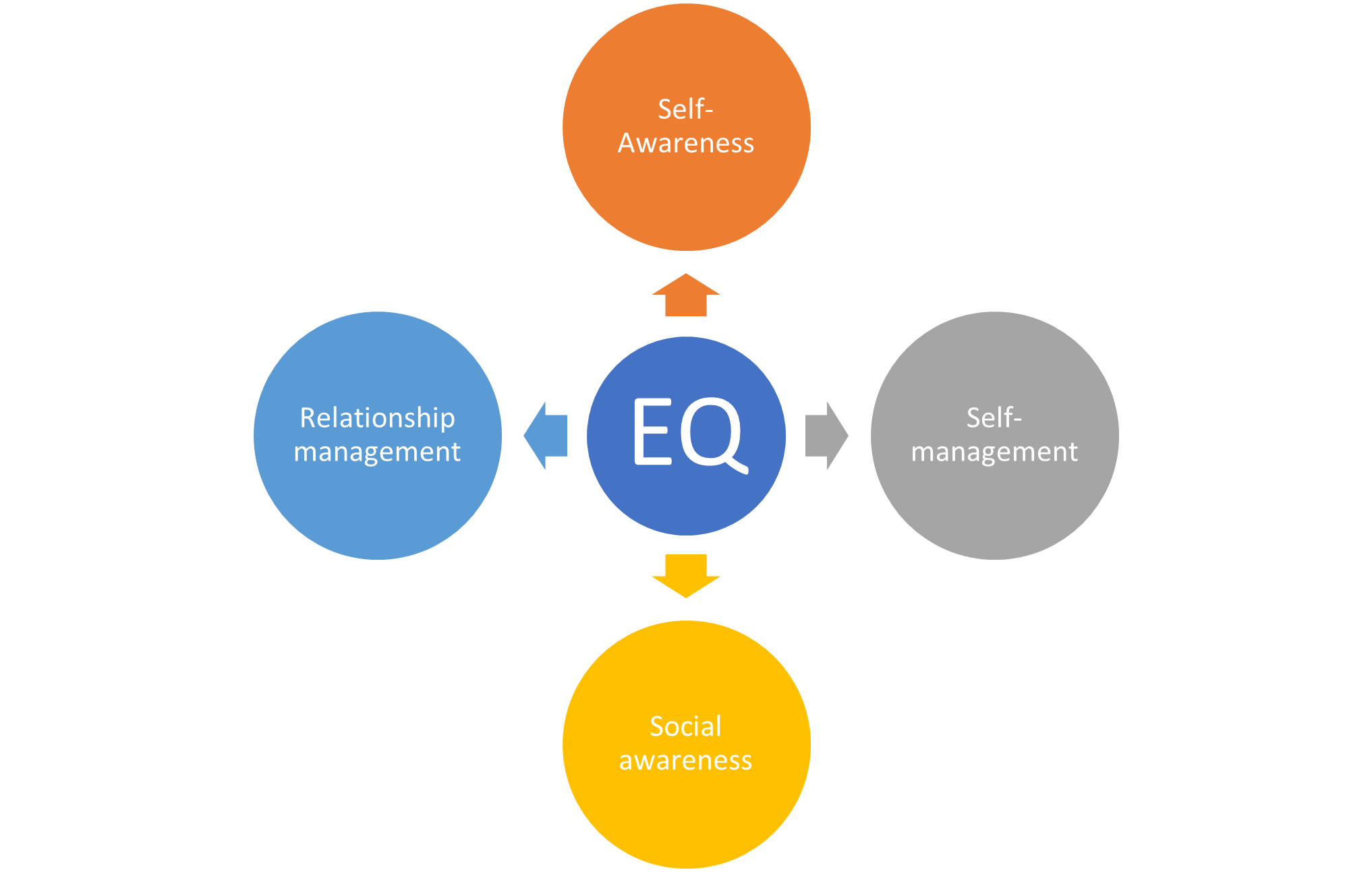68
Identifying Barriers in Communication
Interpersonal communication is the formal, person-to-person interactions that occur whenever two people communicate either over the phone, in a meeting or in a casual conversation.
Improving your Interpersonal Skills
There are small ways to improve your interpersonal skills and the list below shares some of those methods.
Active listening is a described interpersonal skill for leaders and managers. While listening, a good leader also filters and remembers important information shared by their coworkers and team members.
Non-verbal cues such as smiling, nodding and holding an ‘open’ stance can make you more approachable and likeable as a leader.
Suggesting instead of commanding presents your ideas to the group and allows others to contribute to your ideas. “Could we talk…”, “One idea I did have…” allows your ideas to be shared in a comfortable and engaging effort.
Giving and receiving feedback can often be difficult for managers and their teams. Whether your feedback is good or bad you want to ensure it is objective, helpful, builds goodwill and helps both parties work towards positive communication and work goals.
Think(ing) as managers and leaders look at the goal and identify the steps needed to achieve that goal. Not making irrational decisions or ‘knee-jerk’ reactions is important for positive interpersonal communication.
Ask and be open to bringing others into the conversation. Work with your co-workers and team to learn about their knowledge and experiences or skills that can help your team achieve its goals.
Show(ing) empathy and understanding your teams values and interests creates a positive work environment. When a team member shows distress or is distraught it is important to acknowledge their emotions and work towards a positive outcome.
Emotional Intelligence
Emotional intelligence or EQ is defined as the ability to perceive, use, understand, manage, and handle emotions. Ever since his 1995 publication of Daniel Goldman’s Emotional Intelligence: Why It Can Matter More Than IQ, companies have been looking for ways to incorporate and cultivate their EQ.
Emotional intelligence is typically broken down into four core competencies:

Self Awareness describes your ability to understand your own strengths, challenges, and being able to recognize your emotions and how they can affect other people around you.
Self Management is the ability to manage your emotions – particularly in regards to managing your emotions and maintaining a positive outlook when presented with setbacks.
Social Awareness describes your ability to recognize others emotions and how they playout in your team.
Relationship Management is the ability to influence, coach and mentor others while resolving conflict or even avoiding it all together.
How can you work with your co-workers and colleagues to channel their EQ? Here are some insights:
- Encourage all team members to share their insights and perspectives before making any key decisions.
- If team members are struggling or falling short of what is required of them – handle the confrontation constructively. Share the group or teams need for them and letting them know how they are adding to the team in a positive way.
- Regularly talk and assess the groups strengths, challenges and modes of interactions.
- Allow a time and space for the group to share and express emotions.
- Encourage proactive solutions and problem solving – trying to reduce conflict before it happens.
Developing Trust
Did you know that there is a difference between credibility and integrity? Even though the words are often used interchangeably they mean different things.
Credibility – the personal trait that inclines people to trust you – business relationships are impossible without it.
Integrity – the quality of being true to your ethical principals in all situations.
Why is trust so important? Trust allows your team to make empowered decisions with speed and efficiency. Trust also decreases stress levels and allows teams to overcome any resistance to change. Trust means your team can feel open and honest and not have to waste time or energy “watching their back.”
Are you building a culture of trust?
As a manager, you want to answer the following questions (thinking about your team or co-workers).
- Am I listening to my employees and seeking their ideas, suggestions and opinions?
- Am I open to employee ideas and including those ideas in the decision making process?
- Am I setting and communicating consistent expectations regarding team and individual performance objectives?
- Do I tell employees the truth and follow through by doing what I say I am going to do, even when it is difficult?
- Am I treating everyone with the same dignity and respect that I expect and would like to receive, without revealing bias, judgment or personal favoritism?
- Are my own career goals or a personal agenda interfering with my team’s performance and my commitment to my employees’ success?
- Do I demonstrate concern and care for each individual employee, work group and department?
- Do I set a good example and conduct myself in a manner consistent with the mission, vision and values of the organization?
How Behaviour Impacts Our Relationships
Have you ever worried that you are too passive or too aggressive when working with a team? It is a common worry for many managers as they seek out the middle ground of being assertive in the workplace.
What are the benefits to being assertive?
Even though being assertive does not come easy to many people it is an important skills for managers to learn. It can help you:
- Strengthen relationships and show respect for others;
- Reduce the ‘power struggles’ within a team;
- Build confidence and trust amongst team members;
- Reduce anxiety and stress;
- Allow team members to feel comfortable sharing emotions and ideas.

Building Relationships in the Workplace
A good work relationship requires inclusion, open communication, respect and trust. Humans are social creatures which is important to keep in mind as we spend one-third of our lives at work, which makes building positive relationships even more critical. The more comfortable we are at work, the more comfortable you will become with voicing your opinions, brainstorm and accepting new ideas.
Journal Prompt
Using the forum labelled Course 5: Chapter 6 make a journal entry responding to the prompt below. Ensure that you title the entry Lesson 6. After writing a journal entry, go and make a comment on two other posts from your classmates. It can be about anything you noticed, liked, agreed with etc. The idea is to continue the dialogue about the topic.
How can you create boundaries at work that protect your trust and help you feel more secure in my relationships with your co-workers and clients. What are some ways that you can share these boundaries with others? Share your thoughts.
Journal Entry Evaluation Rubric
|
Criteria |
Exemplary (4) |
Accomplished (3) |
Developing (2) |
Beginning (1) |
|
Purpose |
Strong voice and tone that clearly addresses the purpose for writing. |
Appropriate voice and tone. The purpose is largely clear. |
Attempts to use personal voice and tone. Somewhat addresses the intended purpose. |
Demonstrates limited awareness of use of voice and tone. Limited evidence of intended purpose. |
|
Understanding |
Many interesting, specific facts and ideas are included. |
Many facts and ideas are included. |
Some facts and ideas are included. |
Few facts and ideas are included. |
|
Conventions |
All grammar and spelling is correct. |
Only one or two grammar and spelling errors. |
A few grammar and spelling errors. |
Many grammar and spelling errors. |
|
Reply |
Made two significant contributions to the online forum. Highly supportive of others. |
Made one contribution to the online forum. Supported group members. |
Attempted to contribute to online forum but was vague and unclear in the writing. |
Minimally involved. Offered limited support to online group members. |


